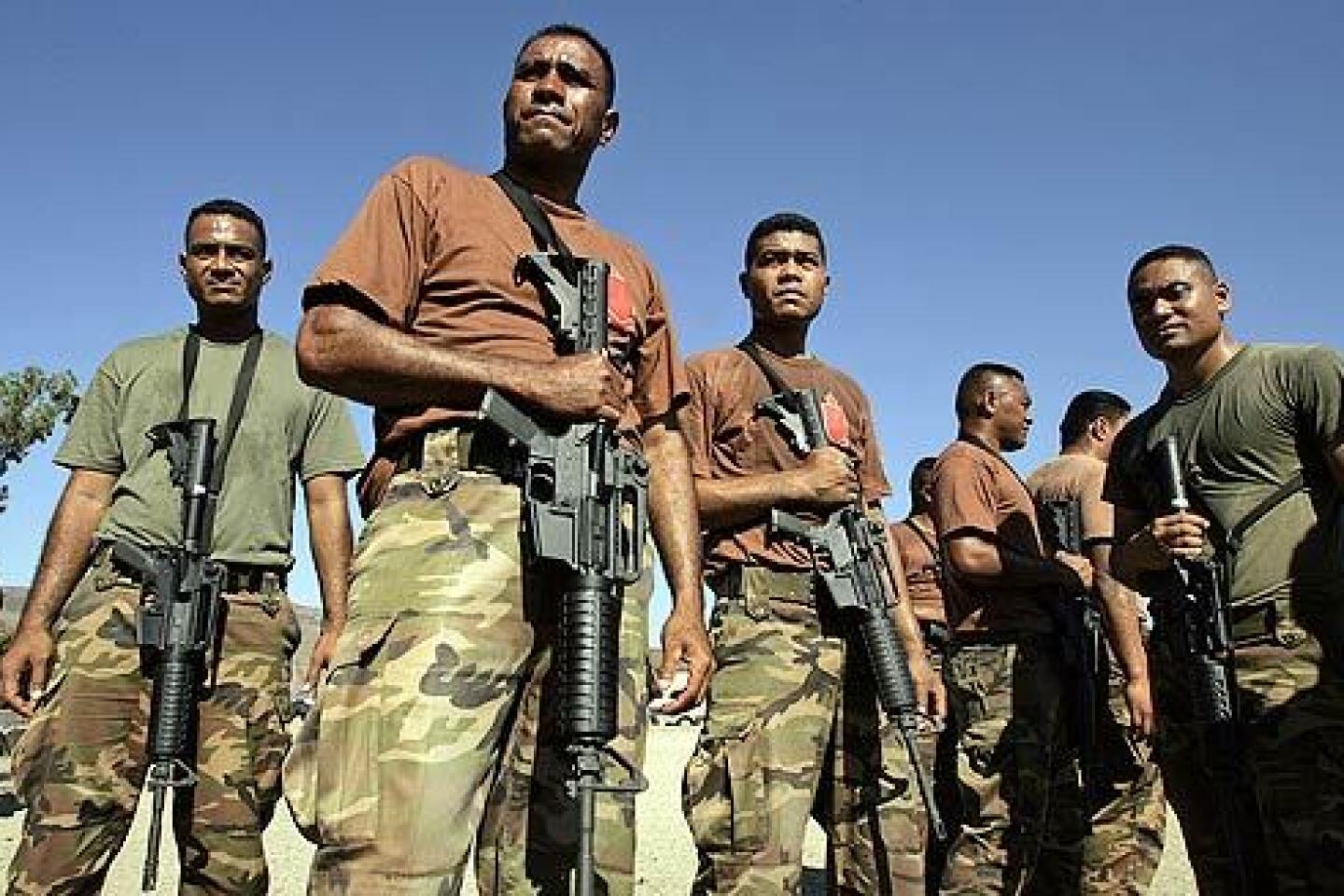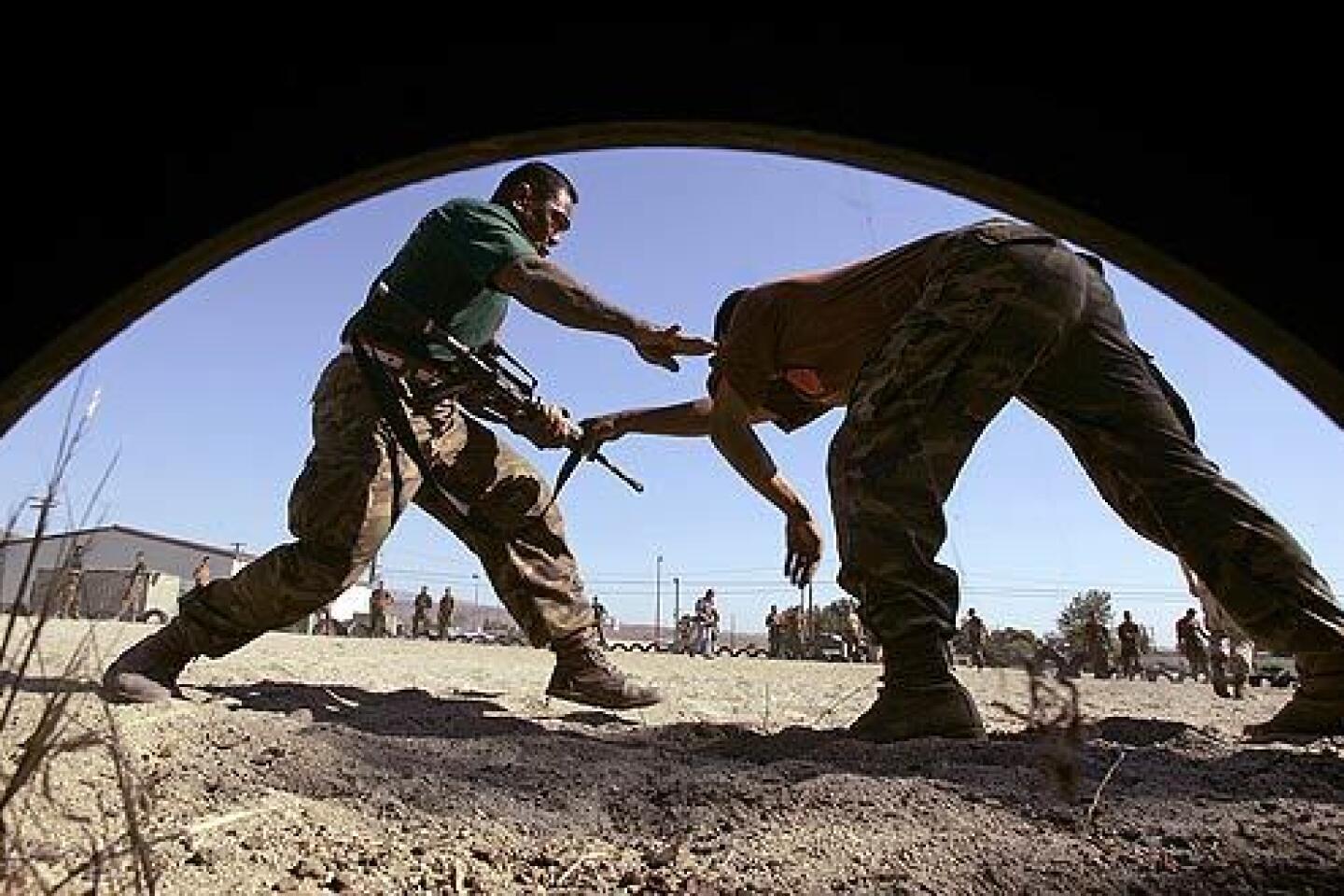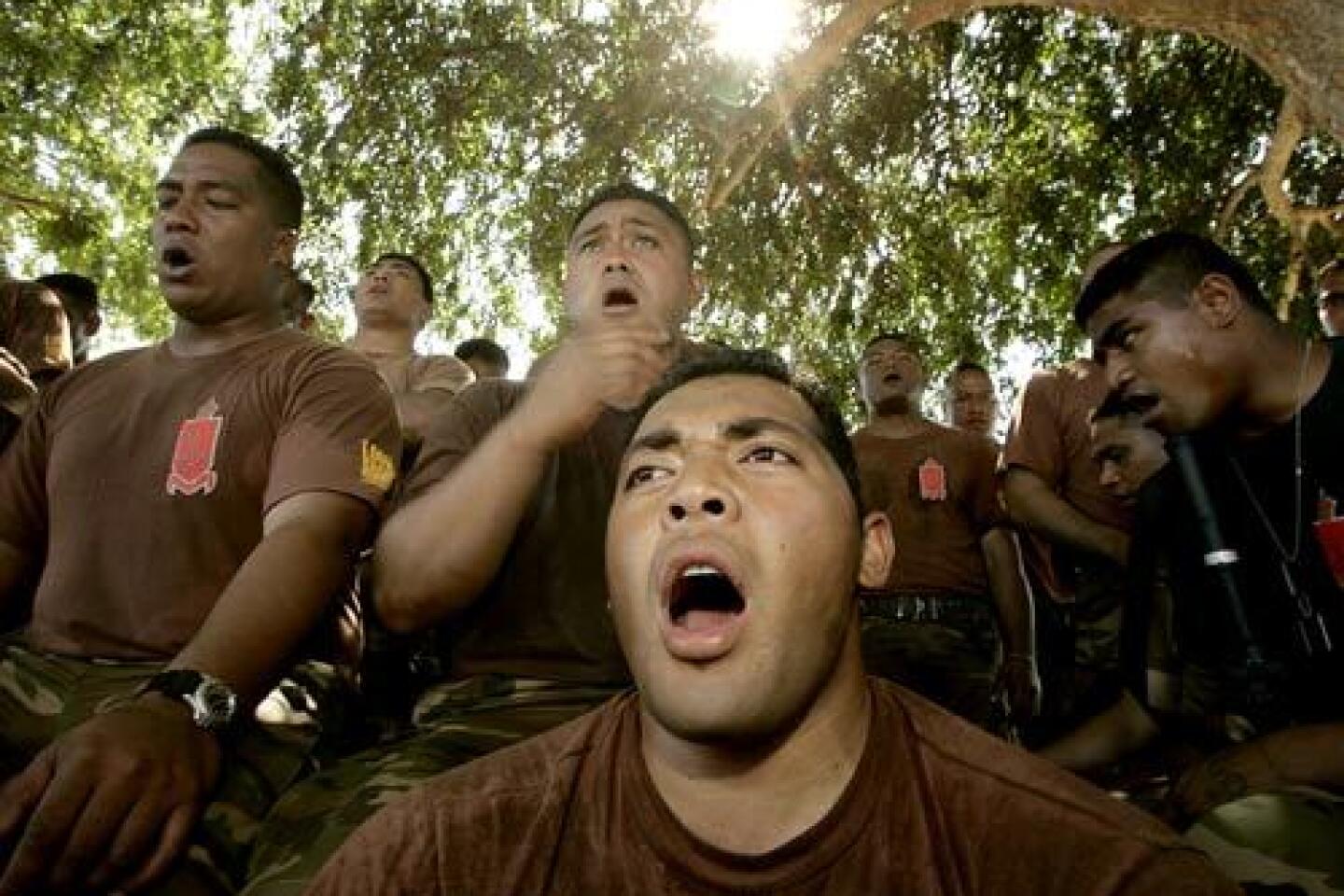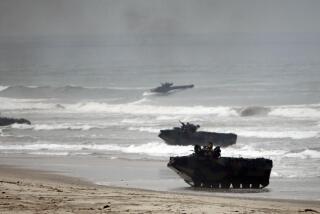After drills are done, they sing
CAMP PENDLETON -- Far from their South Pacific island homeland, members of the Tonga Defence Services are training here for hazardous duty in Iraq.
Long days are spent doing exercises designed to help them in the uncertain days ahead. There’s live-fire weapons training. Hand-to-hand combat. Singing.
Yes, singing. But more on that in a bit.
Soon the 55 Tongans will deploy to the Middle East to assume security duties at Camp Victory, near the Baghdad airport.
To the Tongans will go the responsibility of guarding the Multinational Coalition Force command center at Al Faw Palace -- an inviting target for insurgents -- as well as the rest of the sprawling base.
Tongan Capt. Tau Aholelei said his troops were eager to get to Iraq.
“We’re aware of the risks,” he said. “The harder we train, the smoother it will work out when we get there.” Aholelei translated for his troops, most of whom are not fluent in English.
In keeping with their cultural tradition, the Tongans enjoy singing and have a variety of war chants and love songs. Their days begin with prayer and end with song.
On Tuesday, in the middle of a vigorous morning of bone-crunching martial arts training, the Tongans broke into song, including a fight song that dates to World War II and beyond.
A rough translation of that song includes this refrain:
Although we go through the hardship of training
Even though we must take cover from the rain
We can stand and fight for anything.
The Marines burst into applause at the end.
Tonga has a relationship with the 1st Marine Division that stretches to World War II and the battle at Guadalcanal, where Tongans fought alongside Marines against the Japanese.
In late 2004, Tongans provided security at Camp Blue Diamond, the 1st Marine Division’s headquarters in Ramadi, Iraq.
When insurgents managed to land crude missiles in the Blue Diamond grounds, the Tongans broke into a war dance to show that they were not afraid.
“Having a warrior background helps a lot,” said Marine Sgt. George Moleni, 28.
Moleni, a champion arm-wrestler, was born in Tonga, went to Hawaii as part of a Mormon mission as a teenager, and ended up enlisting in 2000. He is the Marines’ liaison to the Tongans and will join them in Iraq.
At least 10 years older than the average Marine, who tends to be in his or her early 20s, the Tongans come from a variety of Defence Services units, including Royal Tongan Marines and Tongan Royal Guards.
The Tongans are trained in Korean and Chinese martial arts and the use of the M-16, the same firearm used by Marines. Given their country’s economic problems, weapons training is restricted for Tongans.
At Camp Pendleton, the 55-member group was able to fire 34,000 rounds in two days.
“They love shooting,” Moleni said.
A constitutional monarchy, Tonga is located roughly midway between Australia and Tahiti, has a population of about 110,000 and a military numbering about 450 troops. The U.S. is paying much of the expense of sending, equipping and maintaining Tongan troops in Iraq.
In 2004 a peace group expressed concern that sending Tongans to Iraq would make the island a target of terrorism; the Tongan government expects to hear similar protests.
Before the singing, the Tongans were tutored in Marine tactics used to prevent an intruder from seizing a rifle.
“These guys are disciplined,” said Gunnery Sgt. Dennis Kleyh. “They’re up at 5 a.m., ready for anything.”
The Tongans are also being trained in Arabic culture and how to spot roadside bombs.
“They’re mentally focused,” said Staff Sgt. Willie Favors, who was part of the Marine group that went to Tonga in June for the first phase of training.
On Sunday, the Marines took the Tongans to Village Bible Church in Garden Grove, where Tongan spiritual leaders from Southern California hold a weekly service.
Moleni says that, like all troops in Iraq for the first time, the Tongans will have to combat homesickness.
An additional challenge, he said, will be the absence on the mess hall menu of the Tongans’ traditional foods: roast pig and taro root.
But the unlimited supply of ice cream that is a mess hall staple may be one compensating factor, he said.
“They love it,” Moleni said.
tony.perry@latimes.com
More to Read
Start your day right
Sign up for Essential California for news, features and recommendations from the L.A. Times and beyond in your inbox six days a week.
You may occasionally receive promotional content from the Los Angeles Times.













